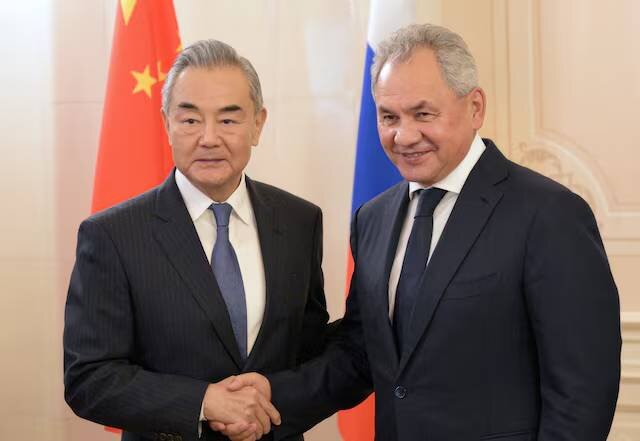-
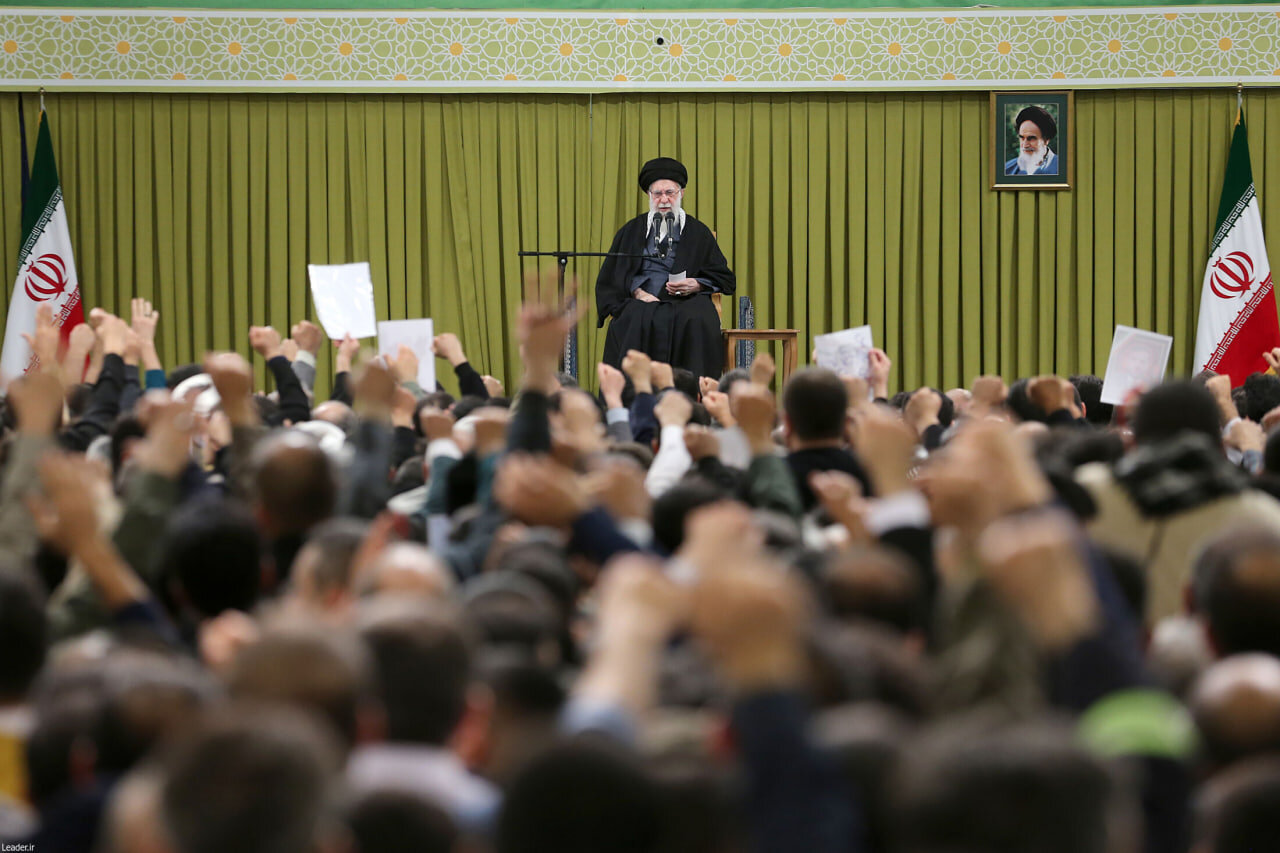 2026-02-01 15:44
2026-02-01 15:44
By Sheida Sabzehvari
A warning to America, resistance forces placed on alert
Ayatollah Khamenei says any US attack on Iran will trigger an all-out regional war
TEHRAN – As the United States continues to threaten possible war against Iran while expanding its naval military buildup in the Persian Gulf, Leader of the Islamic Revolution Ayatollah Seyyed Ali Khamenei has said that Tehran will not initiate a conflict but will respond decisively, and will also ensure that any future war with the United States becomes a regional one.
-

By Sondoss Al Asaad
Women as currency: Epstein files and the moral fraud of the Western order
BEIRUT — The renewed release of documents related to Jeffrey Epstein has been framed in Western corporate media as a triumph of transparency and accountability.
-
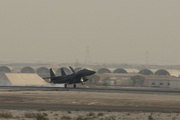
By Xavier Villar
Escalation with Iran is not a linear process
MADRID - In recent weeks, US military pressure in West Asia has reached one of its highest levels, creating a moment of elevated risk and uncertain outcomes. The reinforcement of naval and air assets, the sharpening of deterrent rhetoric and signals of operational readiness have revived a familiar debate in Washington: to what extent can a credible threat of force alter Iran’s behavior without triggering a regional escalation that would be difficult to contain?
-

IRGC Navy chief denounces toxic propaganda and hybrid warfare against Iran
TEHRAN — Rear Admiral Alireza Tangsiri, commander of the Islamic Revolution Guard Corps Navy, issued a message on Sunday, asserting that the Iranian nation remains an “impregnable fortress” against the “sedition and conspiracies” of enemies.
-
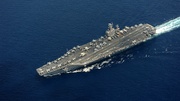
By Ranjan Solomon
The high-stakes of a US strike on Iran and a hard-hitting retaliation
GOA - As of late January 2026, the United States has engaged in a major, visible naval buildup near Iran, characterized by President Donald Trump as a "massive armada". This deployment - including the USS Abraham Lincoln carrier strike group and multiple destroyers - follows intense tensions between Washington and Tehran.
-
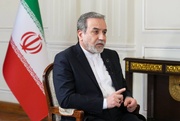
Iran FM eyes short-term nuclear deal while warning of regional wildfire
Araghchi identifies ‘miscalculation’ as the primary threat to peace
TEHRAN — Iranian Foreign Minister Abbas Araghchi stated Sunday that a “just, fair, and equitable” nuclear agreement with the United States remains achievable in the short term, provided Washington abandons its policy of coercion.
Politics
-
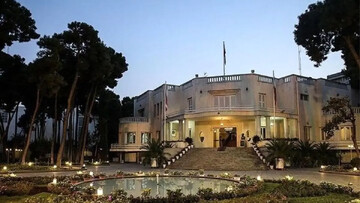
Govt. publishes data of 2,986 Iranians lost in January unrest
TEHRAN — The administration of Iranian President Masoud Pezeshkian on Sunday released the detailed specifications of 2,986 citizens who lost their lives in the recent unrest.
-
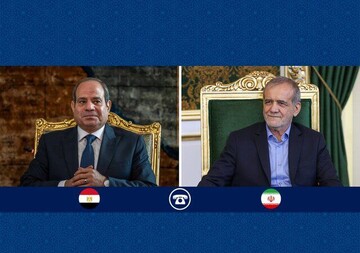
Egypt, Azerbaijan say ready to help ease tensions in region
TEHRAN - Presidents of Egypt and the Republic of Azerbaijan say they are prepared to contribute to de-escalation efforts in the region.
-

Qatari FM says Doha backs efforts to ease Tehran-Washington tensions
TEHRAN - The Iranian Ministry of Foreign Affairs has confirmed that Qatari Foreign Minister Abdulrahman bin Jassim Al Thani sat down, during his visit to Tehran, with his Iranian counterpart Abbas Araqchi and Secretary of Iran’s Supreme National Security Council Ali Larijani.
Sports
-

Tractor edge Sepahan to remain top of 2025/26 PGPL
TEHRAN – Tractor maintained their place at the top of the table after edging past Sepahan 1–0 in Matchweek 19 of the 2025/26 Persian Gulf Professional League (PGPL) on Sunday.
-

2026 AFC Futsal Asian Cup: Iran see off Afghanistan
TEHRAN - Iran survived a fightback from Afghanistan to top Group D of the AFC Futsal Asian Cup Indonesia 2026 with a 5-2 win on Sunday.
-

Our main goal is gold at 2026 Asian Para Games: Behrouz Soltani
TEHRAN – Behrouz Soltani, head coach of Iran’s national wheelchair basketball team, said that their primary objective is to win the gold medal at the 2026 Asian Para Games in Nagoya.
Culture
-

44th Fajr Film Festival opens with screening of “Guardians of the Sun”
TEHRAN- The 44th edition of the Fajr National Film Festival officially opened on Saturday in Tehran, with the screening of the animated film “Guardians of the Sun.”
-

Tehran Book Garden to show popular animated adaptations
TEHRAN – The new season of the cinematic event “Watch & Criticism” has returned to the Tehran Book Garden with screenings and discussions of four popular animated adaptations.
-

“The Rainfall Market” at Iranian bookstores
TEHRAN- “The Rainfall Market” by Korean author You Yeong-Gwang has recently been published in Persian.
Economy
-

Iran targets $10b in energy services exports to Eurasia by 2028/29
TEHRAN – Iran is aiming to export about $10 billion worth of energy-related services, engineering expertise and goods to the Eurasian region by 2028/29, leveraging a free trade agreement as its main platform for expansion, an industry official said.
-
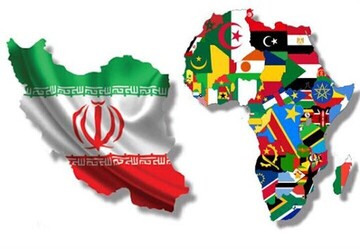
Iran’s exports to Africa jump 66% in 9 months yr/yr
TEHRAN – Iran’s exports to Africa rose 66 percent in the first nine months of the current Iranian calendar year (March 21-December 21, 2025) from a year earlier, driven by stronger trade engagement and policy support, a senior official at the Trade Promotion Organization of Iran (TPO) said.
-
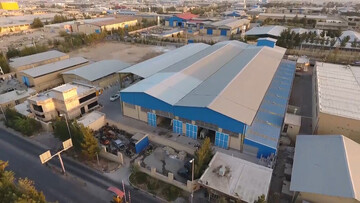
Govt. announces new investment incentive for industrial parks
TEHRAN – Iranian government has introduced a new incentive for investors in industrial parks and zones, cutting upfront land payment requirements as part of efforts to support production and ease investment conditions, the Industry, Mining and Trade Ministry said.
Society
-

Wetlands most threatened ecosystems on earth
TEHRAN – Wetlands are among the ecosystems with the highest rates of decline, loss, and degradation; they are disappearing three times faster than forests and are Earth’s most threatened ecosystem.
-

VP attending Egypt intl. conference on women’s rights
TEHRAN – Zahra Behrouz-Azar, the Vice-President for Women and Family Affairs, is participating in an international conference on leveraging religious and media discourse to protect and promote women’s rights, being held on February 1 and 2 in Cairo, Egypt.
-

Iran atop Islamic nations in molecular, genetic technologies
TEHRAN – The Web of Science (WoS) has ranked Iran first among Islamic countries in molecular and genetic technologies over the 10 years from 2000 to 2024.
Tourism
-
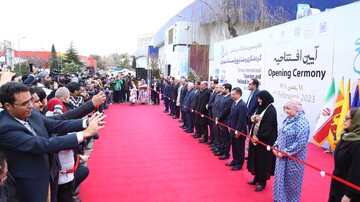
Tehran tourism fair postponed amid concerns
TEHRAN - Iran has decided to postpone the 19th Tehran International Tourism and Handicrafts Exhibition following a joint meeting between tourism officials and private sector representatives.
-

Koozeh-Shekani: Where tradition, belief and renewal converge
TEHRAN - The Koozeh-Shekani ceremony is one of the nearly forgotten traditions observed on the eve of the last Wednesday of the Iranian calendar year, coinciding with Charshanbe Suri, in some villages and towns of South Khorasan province in eastern Iran.
-

Natural heritage overlooked in Iran’s tourism policy, researcher says
TEHRAN – Iran’s natural heritage is an integral part of the country’s national identity but remains poorly defined, under-prioritized and constrained by institutional conflicts, a natural heritage expert said.
International
-

U.S. opposition to al-Maliki: Political and economic pressure on Iraq
TEHRAN – President Donald Trump’s warning to withhold U.S. support if Nouri al-Maliki returns as Iraq’s prime minister goes beyond personal criticism.
-

Trump’s tower of deceit: Epstein’s files pull back the curtain
TEHRAN – The newest release of the Epstein files has once again pulled U.S. President Donald Trump, along with a long list of powerful figures, into the center of a story that refuses to fade. The U.S. Department of Justice — the federal agency responsible for enforcing the law and overseeing the FBI — published more than three million pages of documents, along with thousands of images and videos, on Friday. What emerged is a portrait of Epstein’s world that is both familiar and newly disturbing: a network of wealth, secrecy, and influence that stretched across politics, entertainment, business, and even intelligence circles.
-

How is Washington’s oil-first strategy redrawing Libya’s geopolitical map?
BEIRUT — The recent visits of Massad Boulos, adviser to U.S. President Donald Trump for the Middle East and African affairs, to Tripoli and Benghazi have ignited intense debate inside Libya.
Most Viewed
-
Iran, China and Russia to hold naval drill
-
Trump’s tower of deceit: Epstein’s files pull back the curtain
-
Putin hosts Iranian security chief in Kremlin
-
A framework for collective security in the Persian Gulf and West Asia
-
A warning to America, resistance forces placed on alert
-
Leader visits Imam Khomeini’s mausoleum ahead of revolution’s 47th anniv.
-
Egypt urges de-escalation in calls with Iran and US
-
Army chief says ‘Iran’s finger on the trigger’ as US talks up naval military buildup
-
How is Washington’s oil-first strategy redrawing Libya’s geopolitical map?
-
American security and double standard of disorder
-
Araghchi to Washington: Diplomacy is not a one-way street of dictates
-
Government must listen to the grievances of people: Pezeshkian
-
Riots in Iran Explained
-
World Bank says 3 governance indicators improved in Iran
-
The high-stakes of a US strike on Iran and a hard-hitting retaliation











